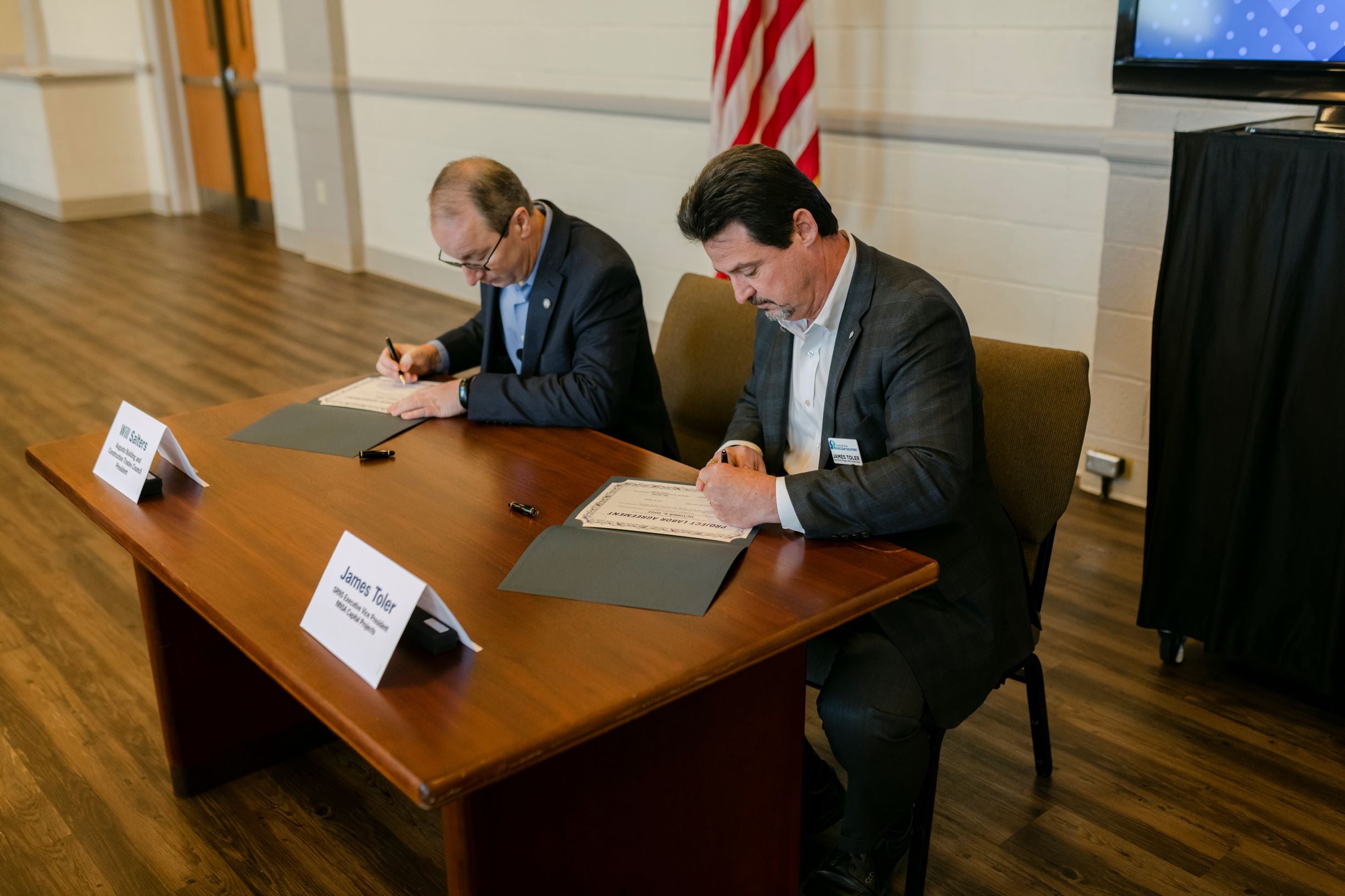A new deal between Savannah River Nuclear Solutions and the Augusta Building and Construction Trades Council paves the way for plenty of work for CSRA trades workers, as construction of the company’s new plutonium processing plant is further underway.
On Oct. 7, Savannah River Nuclear Solutions entered a project labor agreement with the Trades Council, at a signing event at the International Union of Electrical Workers Hall. The Trade Council represents 19 local skilled worker unions, and the building of the Savannah River Plutonium Processing Facility, slated to begin by the end of this year, is poised to bring work for some 2,500 craftworkers from the Augusta area.
MORE: Growing Augusta has several new events over the next few weeks
“SNRS has a long and constructive relationship with the Augusta Building and Construction Trades Council,” said James Toler, SRNS Executive Vice President – NNSA Capital Projects, who signed the agreement on behalf of the site, alongside Trades Council president Will Salters. “The existing labor agreement for the ongoing operations across SRNS has served both SRNS and the Trades Council well since the beginning of SRNS’ Management and Operations contract.”
The plutonium processing facility will comprise Savannah River Site’s part in the National Nuclear Security Administration’s (NNSA) federally-required strategy to produce no less than 80 war reserve plutonium pits—the core of a nuclear weapon—per year.
The NNSA’s approach to supplying plutonium pits to meet stockpile requirements was to have two sites producing them: Los Alamos National Laboratory in New Mexico and SRS.
To build the new processing plant, SRS plans to refurbish the unfinished Mixed Oxide Fuel Fabrication Facility building “to make use of an existing seismically qualified structure,” Toler said, adding several new offices, fabrication space fire protection and other infrastructures.
MORE: Augusta Tech president announces major manufacturing projects
The processing facility, being a large line-item capital project, was the impetus to pursue a new agreement between SRS and the trades unions.
“Examples of changes negotiated in the new agreement include better arrangements for integrating support from multiple construction contractors and introduction of shift premiums for anticipated extended hours of construction,” Toler said.
The Savannah River Plutonium Processing Facility is expected to be complete by 2030.
Skyler Q. Andrews is a staff reporter covering business for The Augusta Press. Reach him at skyler@theaugustapress.com.










